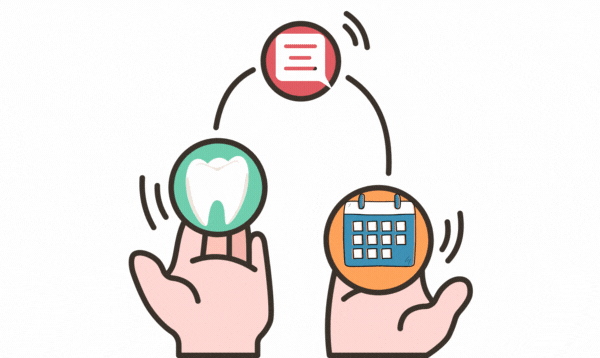Encrypted data is a software and technology industry standard. Data encryption is necessary in the healthcare industry, working as an effective tool to protect patient information (PHI). In this blog post, we want to help you understand the importance of data encryption and explain the steps ABELDent takes towards protecting and securing your practice’s valuable information via encryption.
What is Encryption?
Data encryption is the process of translating information into a code to prevent unauthorized access and leaked data. In simpler terms, encryption is where your practice data is coded into an unreadable format, which then can be transferred safely. For example, your practice data is encrypted before it is backed up with our Remote Backup and Recovery (RBR).
Encryption for Data At Rest vs. Data In Transit
Data at rest accounts for the information that resides in your machine. For example, photos, documents, and files that you store on your computer. These files are ideally protected by multiple layers of security, such as antivirus software and/or a firewall. Encrypting specific sensitive files, such as payments, healthcare-related files, or other private documents, creates another layer of protection, which only allow viewers with authorized access to view the files.
ABELDent protects your resting data by ensuring only people who have an account to access their SQL data will be able to access it. This measure, achieved through data encryption, keeps dental offices safe from malicious third-party attackers. Resting data that is backed up in Cloud servers, such as Microsoft Azure servers (which ABELDent uses for ABELDent RBR) is secured under multiple layers of encryption and firewalls to ensure your practice data is as protected as possible.
Data in transit, as you might have guessed, is data that travels. An example of this is data that is being backed up on Cloud servers. Data in transit is more vulnerable than resting data, as communication channels are easier to attack for cybercriminals. For this reason, encryption is a necessity for transmitting data. ABELDent ensures your data in transit is secure by encrypting your information before backing up your data, such as with the ABELDent Cloud solution and ABELDent RBR. As mentioned above, when the data reaches the Cloud location for storage, the information is encrypted and safeguarded under multiple layers of security.
Minimize third-party systems
Your office may use several third-party software systems outside of your original practice management software. For instance, your office may use separate patient communication, imaging, and system backup software. From a security standpoint, it is ideal to minimize the number of different applications your office runs. We want to highlight the risks associated with integrating third-party software with your practice management system, especially if some platforms are outdated or data is kept unencrypted. Some of these risks include:
- Possibility of hacking and accessing PHI by anyone who may have access to your system via a third-party entrance
- Older/outdated versions of software are typically not as secure as new versions, and therefore must be kept up-to-date
- Juggling too many different platforms makes it harder to stay up to date with each software
Opting for an all-in-one solution, such as ABELDent, helps you minimize these issues, as well as making daily workflows easier and faster.
What to do with this information?
Now that you have a better understanding of the process of encryption and can see how it is a technology industry-standard, we hope you take some time to evaluate your practice’s security set-up. Is your practice data regularly backed up into local or cloud servers? How often are your practice data backups? If your office uses local servers, what protective measures do you have in place to deter cyberattacks?
ABELDent is here to help you secure your practice’s valuable data. Patient records, financial information, and other classified documents can’t fall into the wrong hands. If you are interested in using a top-quality secure platform such as ABELDent Cloud, or want to look into backing up your data, we invite you to contact us – we are happy to discuss your practice security options with you.




